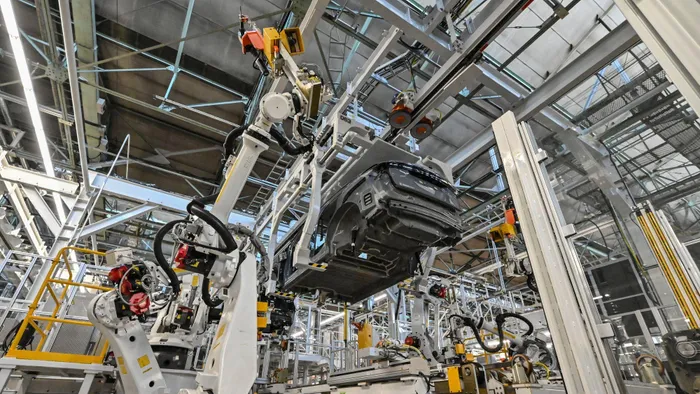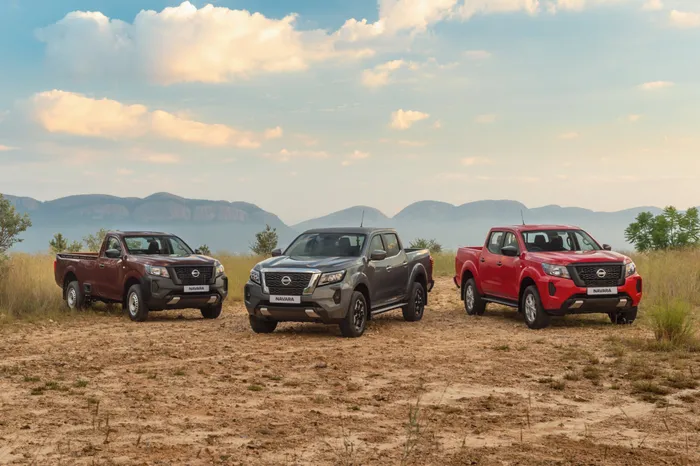Nissan to close 40% of its factories in shock restructure: will SA’s Rosslyn plant survive?

Nissan is planning to reduce its global production network by 40%.
Image: Richard A Brooks / AFP
Nissan is set to implement an even more severe turnaround plan than previously envisaged, with seven factories now facing closure and 20,000 jobs on the line.
This follows an annual net loss of 671 billion yen (R82 billion) announced on Tuesday for the financial year to March 2025.
The company announced on the same day that it planned to reduce the number of vehicle production plants in its global network from 17 to 10, by fiscal year 2027, while also reducing the workforce by 20,000. It had previously planned to cut around 9,000 jobs.
Further to that, Nisan said it plans to streamline its powertrain plants and cancel its planned Lithium Iron Phosphate battery plant in Kyushu, Japan.
"We wouldn't be doing this if it was not necessary to survive," said Nissan’s newly appointed CEO Ivan Espinosa.
"In the face of challenging FY24 performance and rising variable costs, compounded by an uncertain environment, we must prioritise self-improvement with greater urgency and speed, aiming for profitability that relies less on volume,” he added.
But where does this leave Nissan South Africa’s Rosslyn plant, located outside Pretoria?
Nissan has not named the seven plants which face closure, although its Indian and UK facilities appear to be safe, given recently announced production plans for those.
IOL has approached Nissan South Africa for comment, but a response had not been received at the time of writing.
Company spokespersons have previously stated that the local plant was a key hub for its expansion into Africa.
However, it currently only produces the Navara bakkie in double cab and single cab formats, and production volumes are significantly lower than in previous years, following the 2024 discontinuation of the NP200 compact bakkie and the NP300 in 2021.

Locally-built Nissan Navara range.
Image: Supplied
To put Rosslyn’s current production numbers into perspective, Nissan sold just 1838 locally produced Navaras in the first four months of 2025, and exported 3,101 units. That's an average of just 1,234 units per month in total.
Ford South Africa, which also produces just a single bakkie at its Silverton plant in Pretoria, sold 7,933 Rangers to local customers during that same period and exported 20,244 units.
SA-built Navaras are currently exported into Africa, while Ford’s Ranger is shipped to over 100 international markets, including Europe.
Furthermore, Nissan’s local market share has more than halved in the past seven years, from an annual volume of 51,825 units in 2017 (including imports) to just 22,286 units in 2024.
Following the discontinuation of the NP200 in 2024, whose Russian-developed replacement was cancelled due to the war with Ukraine, Nissan South Africa has been looking for ways to expand production at the plant.
ALSO READ: Nissan opens up about aborted NP200 replacement
In March 2024, a company representative told Moneyweb that the local division was aiming to source another successor to the NP200, and was also investigating a third model for the Rosslyn plant.
It remains to be seen whether any of these projects will go ahead, in light of Nissan’s new plan to shut seven plants.
Internationally, Nissan plans to lean more heavily on its alliance partners Renault and Mitsubishi, the latter providing the basis for the Navara replacement.
Nissan also plans to use on Renault’s Indian division to launch new MPV and SUV models in 2026 and 2027. Having access to more affordable products from India, could certainly improve Nissan South Africa’s fortunes as an importer. The Magnite compact SUV is already the division’s best seller.
But whether Nissan SA still has a future as a manufacturer is anyone’s guess.
IOL
Related Topics: